
https://www.youtube.com/watch?v=NFxQJmvgXOQ
How Much Vitamin D Do I Need SURPRISING
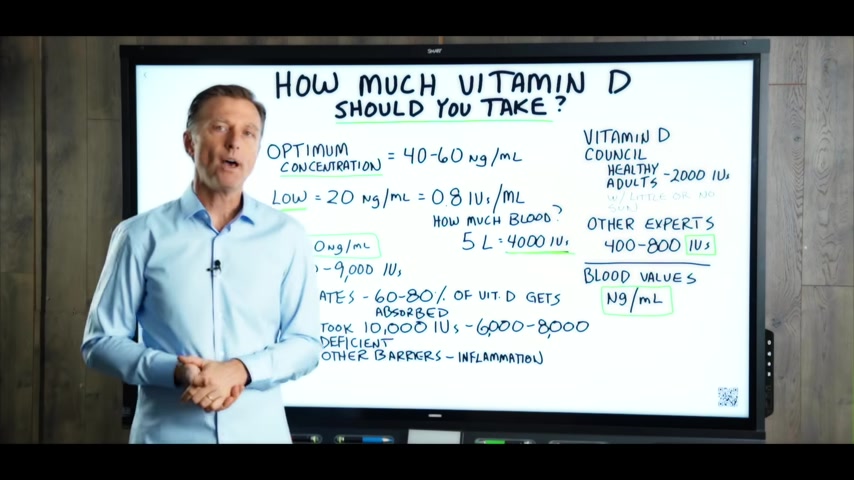
So I get this question a lot .
How much vitamin d should we be taking on a daily basis ?
Well , I think we should probably go to the experts .
Right ?
The vitamin d council , stated that healthy adults , which I'm still trying to find some healthy adults , need about 2,000 IUs , that's international units , k , per day if you're getting little to no sun .
Other experts recommend 400 to 800 IUs per day .
Now , here's the problem that I need your help with .
Okay ?
I just don't understand this .
When we take vitamin d , it's in these units right here , international units .
But when they measure the blood , it's not in international units .
It's in NGs per milliliter .
Okay ?
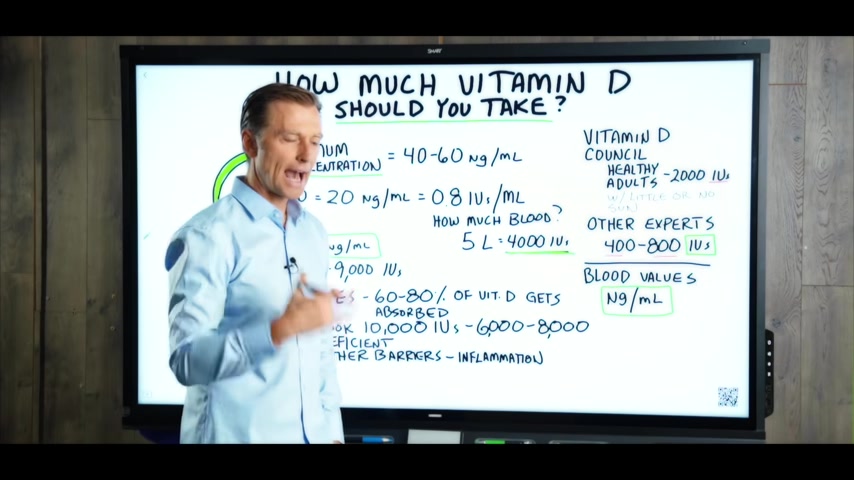
So if you're deficient in your blood , how do we know how much vitamin d to take because the units and supplements are IUs .
Okay ?
So it's kinda weird .
I it's I don't know why they do that .
But if we take a look at the optimum concentration in your blood of vitamin d , it should be between 40 to 60ng's per milliliter .
Okay ?
So if you had 20ng's per milliliter , that would be considered low .
Right ?
Well , let's convert 20 ng's per milliliter to international units per milliliter .
It would be 0.8 .
Pretty small .
But the question is , how much blood do we have ?
Because this is per milliliter , not all of your blood .
So we have about 5 liters of blood in the average size person .
And that would give us , if we do the math , 4,000 international units .
Okay ?
Vitamin D .
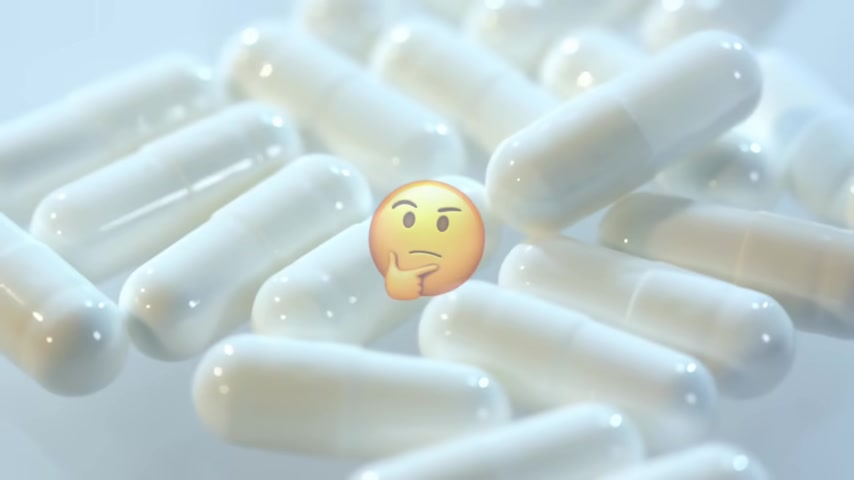
So people that are deficient that have only 20 ng's per milliliter really have about 4,000 international units of vitamin d , which is actually greater than what is recommended .
There's some conflicting information here .
Isn't there ?
Alright .
So just keep tracking with me here because if we take the optimum concentration , which is 40 to 60 , okay , how much vitamin d is this in international units ?
Well , if you do the calculations , it's 8,000 to 9000 IUs .
That's what's normal in your blood .
So how are we gonna get this if we're only recommending this or that ?
That's what I just don't understand .
It doesn't make sense to me .
And on top of that , I don't think you're gonna absorb a 100% of your supplements .

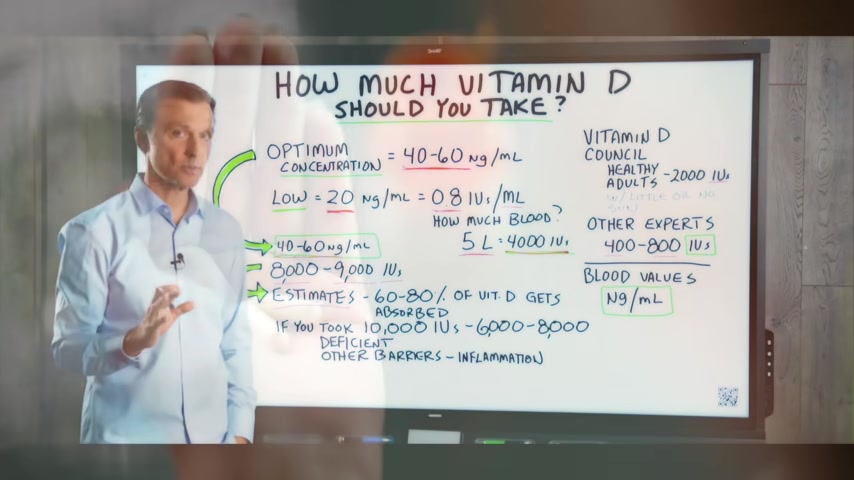
Estimates show that you really only absorb between 60 to 80% , that's in a healthy person , of these vitamin d supplements when you take them .
If you're taking d 3 not d .
And so if we're only absorbing 60 to 80 percent and you took , let's say , 10,000 IUs in one day , you're really only absorbing 6000 to 8000 international units of vitamin d 3 which just barely make the the normal amount that you need in your blood .
So there's a big problem here because these recommendations do not match what we really need to normalize our blood values .
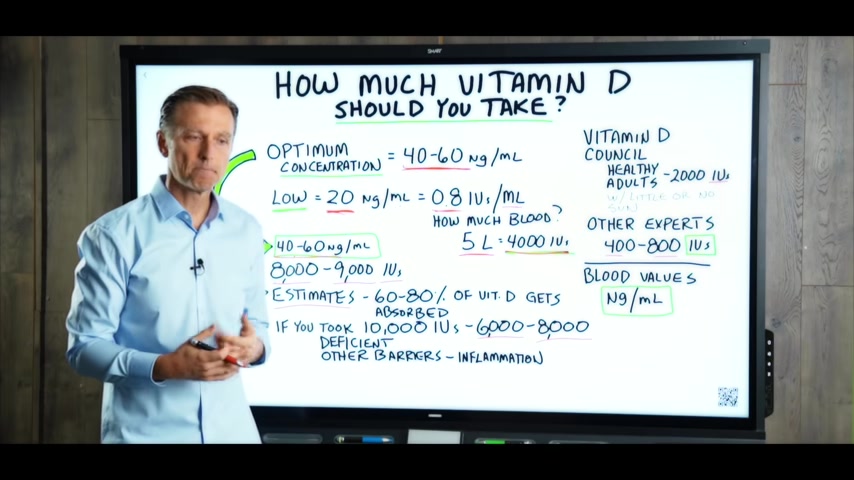
And then on top of that , if you're taking these amounts and you have a deficiency or you have other problems like inflammation or you don't have a gallbladder or you have gut damage from past antibiotics or you're older or you have insulin resistance or you are obese , there are so many barriers that are gonna prevent you from absorbing this vitamin d .
Anyway , what I would recommend for the average person is to take at least at least 10,000 IUs every single day .
And on top of that , get some sun if you can just to meet the , minimum requirements that your body needs .
And another point I wanna bring up is that vitamin d is the most important vitamin because it's so important for your immune system to maintain a healthy mood , to keep inflammation out of your body , and not to mention your bone structure , your teeth .
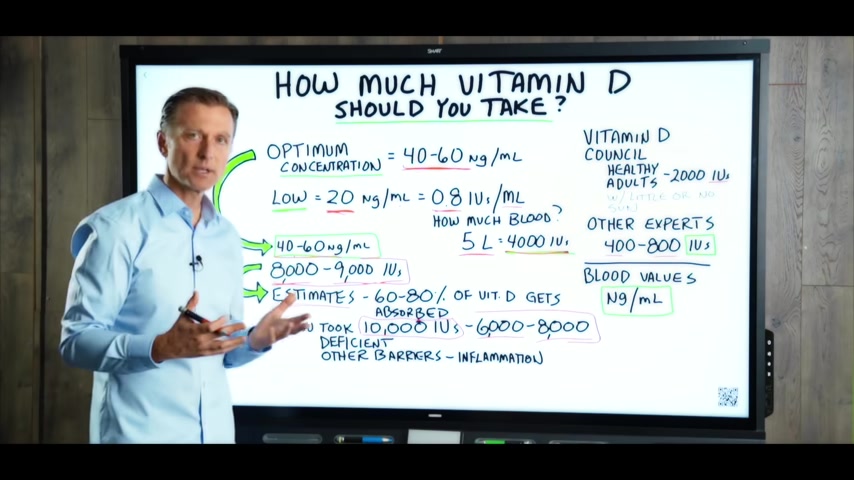
So it's no wonder why the great majority of the population is deficient in vitamin d .
So if you're enjoying my content , which I hope you are , and you're applying this knowledge to your health and you have a success , I'd really appreciate you sharing your success story .
So click the link down below to my website where you can upload your success story so you can help inspire others .

Are you looking for a way to reach a wider audience and get more views on your videos?
Our innovative video to text transcribing service can help you do just that.
We provide accurate transcriptions of your videos along with visual content that will help you attract new viewers and keep them engaged. Plus, our data analytics and ad campaign tools can help you monetize your content and maximize your revenue.
Let's partner up and take your video content to the next level!
Contact us today to learn more.